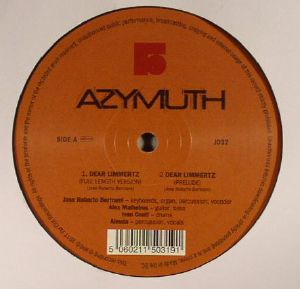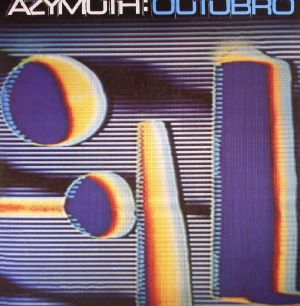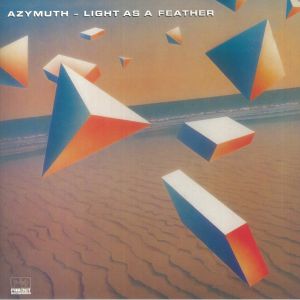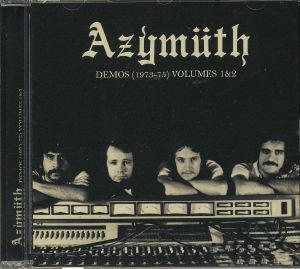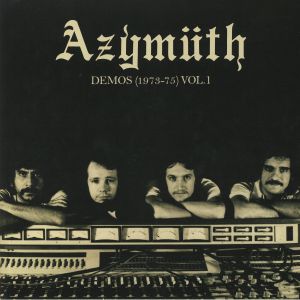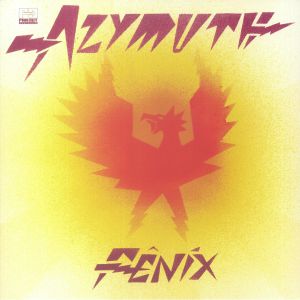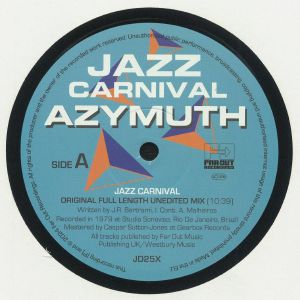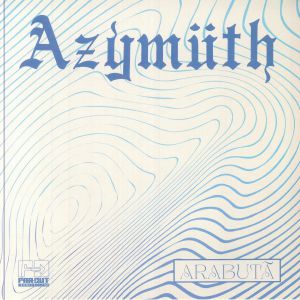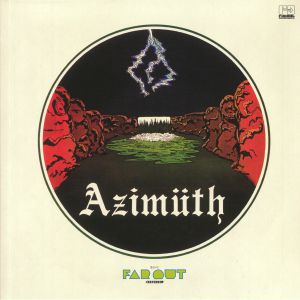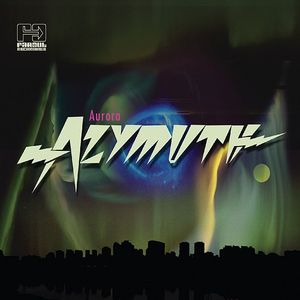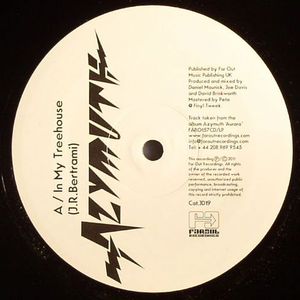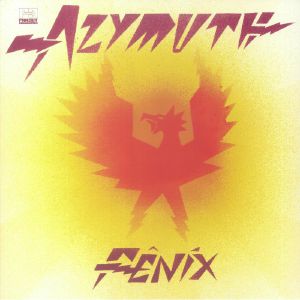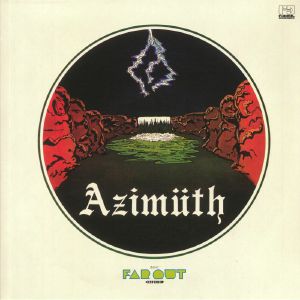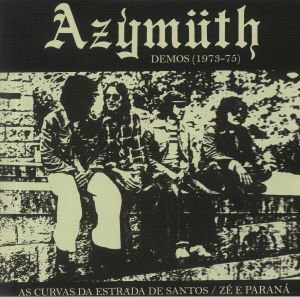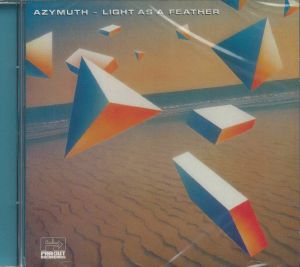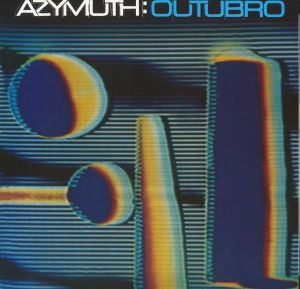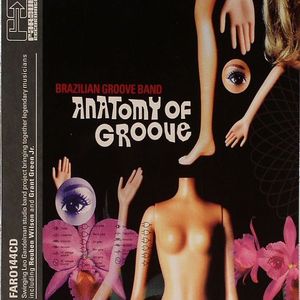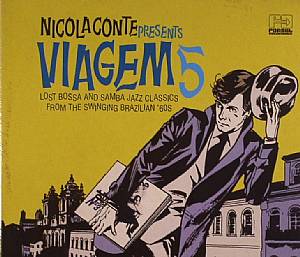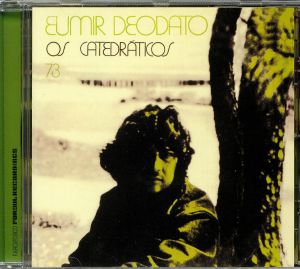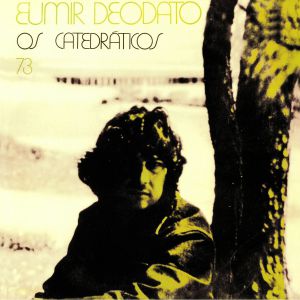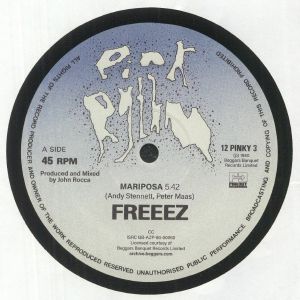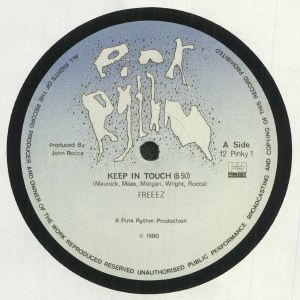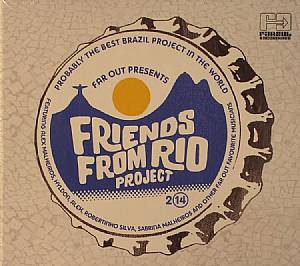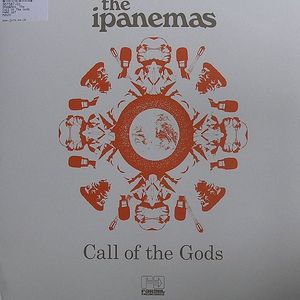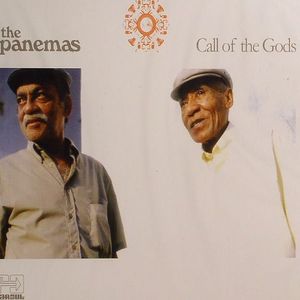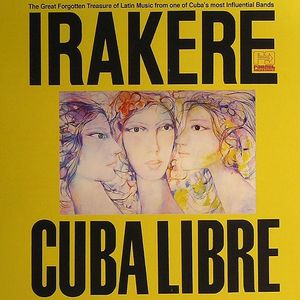Receive new release alerts for Far Out
Filter
Genre
Featured
Release Title
Price
Tags
Far Out Vinilo y CD
Browse the latest Vinyl & CD releases on Far OutSimilar labels:
Review: First released in 1979 during the heyday of Brazil's jazz-funk movement, Antonio Adolfo's Viralata has long been considered an era-defining release by those who know. Given that original Brazilian copies are frustratingly hard to come by, this official reissue from Far Out Recordings - who previously worked with Adolfo on his 2007 set Destiny - should be an essential purchase for all those who dig Brazilian music. A little more jazz-focused than albums by contemporaries such as Azymuth, much of "Viralata" is slick, polished and incredibly well produced, with notable samba influences amongst the unashamed tributes to leading American artists. As you'd perhaps expect, the musicianship is astonishing.
… Read more in stock $27.44
Cat: LPA 003 (B-STOCK). Rel: 24 Jun 20
International
B-STOCK: Record warped, creasing to corner of outer sleeve but otherwise in excellent working condition
Review: ***B-STOCK: Record warped, creasing to corner of outer sleeve but otherwise in excellent working condition***
First released in 1979 during the heyday of Brazil's jazz-funk movement, Antonio Adolfo's Viralata has long been considered an era-defining release by those who know. Given that original Brazilian copies are frustratingly hard to come by, this official reissue from Far Out Recordings - who previously worked with Adolfo on his 2007 set Destiny - should be an essential purchase for all those who dig Brazilian music. A little more jazz-focused than albums by contemporaries such as Azymuth, much of "Viralata" is slick, polished and incredibly well produced, with notable samba influences amongst the unashamed tributes to leading American artists. As you'd perhaps expect, the musicianship is astonishing.
… Read moreFirst released in 1979 during the heyday of Brazil's jazz-funk movement, Antonio Adolfo's Viralata has long been considered an era-defining release by those who know. Given that original Brazilian copies are frustratingly hard to come by, this official reissue from Far Out Recordings - who previously worked with Adolfo on his 2007 set Destiny - should be an essential purchase for all those who dig Brazilian music. A little more jazz-focused than albums by contemporaries such as Azymuth, much of "Viralata" is slick, polished and incredibly well produced, with notable samba influences amongst the unashamed tributes to leading American artists. As you'd perhaps expect, the musicianship is astonishing.
out of stock $26.05
Intérprete: Craig Charles Funk And Soul, Juno Recommends Jazz
in stock $27.44
Review: With the dust of their new album Fenix still settling, Far Out and Azymuth flex back 37 years for one of their finest and most indelible records in their illustrious and consistent career: "Dear Limmertz" slaps and pops with the same ridiculous soaking wet slap bass it did when it first blew your mind. With dreamy chords, that yearning vocodered vocal and the pensive prelude thrown in, it's still an incredible one-of-a-kind record. And that's before we get to the way-ahead-of-its-time breakbeat and deep groove of "Maracana". This is still piping hot and always will be.
… Read moreout of stock $10.54
Review: 45 years and 30-odd albums deep and still cooking up incredible, exciting fusions Brazilian jazz troupe Azymuth are set to update their near-unparalleled repertoire with a new album later this year. In the meantime they're keeping us warm with their sixth album, 1980's Outubro. In places you can really hear big synthetic influences instantly, like the heavy Yamaha riff on full-powered opener "Papasong". In others it's more subtle and aged (thanks to Daft Punk) with class, like the sexy robo-voxed sleazy funk strutter "Dear Limmertz". Elsewhere you can hear the band at their percussive prime ("Carta Pro Airto") and at their damn right sexiest ("Outubro")... And get all excited for their new material.
… Read moreout of stock $19.40
out of stock $21.18
in stock $13.02
Review: Far Out takes a second deep dive into the previously unheard early demos of Brazilian jazz-funk greats Azymuth, offering up more unpolished gems recorded during the years as one of Brazil's most sought-after session bands. Interestingly, much of the material is closer in tone and style to their subsequent releases, though some of the rhythms, solos and basslines are arguably a little wilder and more experimental. Highlights include the fizzing opener "Duro De Roer", the sweaty and percussive brilliance of "Bateria Do Mamao", the Blaxploitation influenced spy-chase madness of "Quem Tem Medo" and the surprisingly smooth "Manha", the demo that eventually earned Azymuth a recording contract.
… Read moreIntérprete: Juno Recommends Jazz, Dynamite Cuts
out of stock $29.11
Review: Before they found fame with their 1975 debut album, Azymuth divided their time between working as backing musicians (attending recording sessions with some of Brazil's top talent) and recording experimental home demos. Recently rediscovered, these demos are finally being given a release thanks to the efforts of Far Out chief Joe Davis. There's much to admire on this first batch (a second volume is also available) of previously unheard early recordings, from the high-octane Brazilian funk insanity of "Prefacio" and Jimmy Smith-esque "Melo De Cuica", to the spacey samba/jazz-funk fusion of "Xingo (Version One)" and the relaxed, slow-burn brilliance of seven minute B-side opener "Laranjeiras".
… Read moreout of stock $29.65
Intérprete: Simbad, Far Out Recordings
out of stock $11.08
Review: It naturally took the remaining members of Azymuth a few years to come to terms with the passing of keyboard wizard and shining light Jose Roberto Bertrami. Fenix is their first album since his death in 2012, and sees original members Ivan Conti and Alex Malheiros being joined by guest keys-man Kiko Continentino. Happily, he's ever bit as capable on the electric piano as Bertrami, guaranteeing that Fenix sounds every bit as magical as the trio's original 1970s work. As usual, the music effortlessly blends jazz-funk, samba, disco, and synth-funk flavours, resulting in a sun-kissed set of tracks that sounds every bit as magical, summery and dance floor friendly as their greatest material. We'd say it was a return to form, but they've been consistently good for 40-odd years.
… Read moreIntérprete: RUSTAM OSPANOFF., Juno Recommends Jazz
out of stock $42.12
Review: Reserved for Record Store Day comes this exciting new doublet from brilliant Brazilian jazz-funkers Azymuth, in the form of both an extended mix of their enduring major hit single from 1979, 'Jazz Carnival', and a fresh remix by Yambee, the duo of Ashley Beedle and Yam Who?. The original track was a rare slice of instrumental funk music, dare say instrumental music at all, to climb the UK charts and remain in its upper echelons for a solid twenty weeks. Though its initial popularity was lengthy, it has since then gone underground, becoming a throwback favourite of the likes of Kerri Chandler, Mr. Scruff and Gilles Peterson, to name but a few icons to play it back out over the years.
… Read moreout of stock $20.79
Review: Legendary Brazilian jazz-funk trio Azymuth drop their latest record 'Arabuta', pointing themselves in a new cardinal direction in sound. The limited 7" brings two new mix version of their recently released 'Arabuta' to the fold, both by fellow producer and Azymuth collaborator Daniel Maunick. Part-dancefloor, part-dub, both versions bring preservative tones, fully circling the resinous Brazilwood tree after which the track is named. The Tupi Guarani word for the endangered tree fuses with deft unperturbed jazz licks, despite the sense of urgency in saving the species, underscoring Azymuth's fusion of timeless Brazilian jazz-funk and cosmic futurism. In more ways than one, this record serves as a symbol of both the value and fragility of Brazil's natural beauty.
… Read more in stock $19.40
Review: Rewind to 1975, Brazilian supergroup Azymuth hit their richest creative vein with this self-titled full-length. Just as the band remain so themselves, this is still hugely relevant and ridiculously on-point considering it's 40 years on the clock. Proof can be found on every track from the sedative harmonic charms of the opener "Linha Do Horizonte", the raw slap bass funk, velvet keys and soaring synths on "Seems Like This" and the frenetic, almost techy mentality of "Wait For My Turn". An essential addition to any collection, this would have blown minds to pieces back in 1975.
… Read moreIntérprete: Andrew Pirie (Melting Pot), Mukatsuku Records Chart, Koichi Sakai, RUSTAM OSPANOFF., Adam isbell -Racubah Sound System, Far Out Recordings, Juno Recommends Funk, Afro Beat Foundation, Summer Carnival Chart, Skyline Recordings Chart, Soul Of Hex, DJ Kobayashi, Charlie bucket/ dancing in space, Juno Recommends International, Professor Shorthair, DJ Blue Funk, Kalita Records
… Read more in stock $30.77
out of stock $15.80
Review: In many ways, the surge in popularity enjoyed by Brazilian jazz-funk trio Azymuth since signing to Far Out Recordings in 2000 has been remarkable. Of course, fans of Brazilian music have always thought highly of their mood-livening, samba-centric take on jazz-funk, but rarely have their recordings been this popular or frequent. Aurora is, amazingly, their 26th studio of a career that stretches back to 1972. If you've bought any of their previous recordings, you'll know what to expect; rubbery bass, pleasingly sunny electronic piano melodies, shuffling jazz drums, and the odd fearlessly uptempo carnival rinse-out. The formula hasn't changed much in 30 years, but it would churlish to criticize especially when they continue to produce inspiring and entertaining music like this.
… Read moreIntérprete: Koichi Sakai
out of stock $11.03
Review: Ahead of their latest long player excursion on the Far Out imprint, iconic Brazilian trio Azymuth drop this twelve inch shaped sample of what to expect with the added bonus of a remix from Italian disco funk deity LTJ Experience. "In My Tree house", purportedly delivered over a two week period of recording and fine tuning in a Rio studio, is a track dear to Azymuth member Jose Roberto Bertrami - dedicated to the great oak tree that obscures the view from his bedroom window. More importantly its vintage Azymuth, packed with tons of tight jazz funk hooks and vocal melodies. The flipside remix of "Crazy Clock" is a late night funk bomb filled with tight guitar lines and woozy moog flourishes sitting pretty on top of a delightfully low slung groove.
… Read moreout of stock $8.86
Fenix (reissue) (B-STOCK) (yellow & orange splattered vinyl LP)
Cat: FARO 194LPX (B-STOCK). Rel: 16 Sep 22
Jazz
B-STOCK: Slight tear in sleeve otherwise vinyl is in perfect condition
Batucada Em Marte
Papa Samba
Neptunians (Short version)
Rio Doce
Corumba
Fenix
Villa Mariana (De Tarde)
Orange Clouds
O Matagal
Review: ***B-STOCK: Slight tear in sleeve otherwise vinyl is in perfect condition***
It naturally took the remaining members of Azymuth a few years to come to terms with the passing of keyboard wizard and shining light Jose Roberto Bertrami. Fenix is their first album since his death in 2012, and sees original members Ivan Conti and Alex Malheiros being joined by guest keys-man Kiko Continentino. Happily, he's ever bit as capable on the electric piano as Bertrami, guaranteeing that Fenix sounds every bit as magical as the trio's original 1970s work. As usual, the music effortlessly blends jazz-funk, samba, disco, and synth-funk flavours, resulting in a sun-kissed set of tracks that sounds every bit as magical, summery and dance floor friendly as their greatest material. We'd say it was a return to form, but they've been consistently good for 40-odd years.
… Read moreIt naturally took the remaining members of Azymuth a few years to come to terms with the passing of keyboard wizard and shining light Jose Roberto Bertrami. Fenix is their first album since his death in 2012, and sees original members Ivan Conti and Alex Malheiros being joined by guest keys-man Kiko Continentino. Happily, he's ever bit as capable on the electric piano as Bertrami, guaranteeing that Fenix sounds every bit as magical as the trio's original 1970s work. As usual, the music effortlessly blends jazz-funk, samba, disco, and synth-funk flavours, resulting in a sun-kissed set of tracks that sounds every bit as magical, summery and dance floor friendly as their greatest material. We'd say it was a return to form, but they've been consistently good for 40-odd years.
out of stock $25.45
Intérprete: Mukatsuku Records Chart, RUSTAM OSPANOFF.
out of stock $28.81
Intérprete: Afro Beat Foundation
out of stock $12.74
Azimuth (reissue) (B-STOCK) (gatefold heavyweight vinyl LP)
Cat: FARO 117LPX (B-STOCK). Rel: 18 Jun 21
International
B-STOCK: Superficial scratches, split/tear and creasing to corner of outer sleeve but otherwise in excellent condition
Review: ***B-STOCK: Superficial scratches, split/tear and creasing to corner of outer sleeve but otherwise in excellent condition***
Rewind to 1975, Brazilian supergroup Azymuth hit their richest creative vein with this self-titled full-length. Just as the band remain so themselves, this is still hugely relevant and ridiculously on-point considering it's 40 years on the clock. Proof can be found on every track from the sedative harmonic charms of the opener "Linha Do Horizonte", the raw slap bass funk, velvet keys and soaring synths on "Seems Like This" and the frenetic, almost techy mentality of "Wait For My Turn". An essential addition to any collection, this would have blown minds to pieces back in 1975.
… Read moreRewind to 1975, Brazilian supergroup Azymuth hit their richest creative vein with this self-titled full-length. Just as the band remain so themselves, this is still hugely relevant and ridiculously on-point considering it's 40 years on the clock. Proof can be found on every track from the sedative harmonic charms of the opener "Linha Do Horizonte", the raw slap bass funk, velvet keys and soaring synths on "Seems Like This" and the frenetic, almost techy mentality of "Wait For My Turn". An essential addition to any collection, this would have blown minds to pieces back in 1975.
out of stock $16.62
Review: Far Out Recordings have singled-handedly made 70s fusionists Azymuth one of the most acclaimed bands of the modern era, with high profile headlines sets at cult festivals around Europe and an endless stream of quick to sell out records. Now they shine more light on the virtuosos instrumentalists with this 7" featuring two more home-recorded demo tracks. Jazz, funk, psched out sounds and rich Moog bass make these some for heir more mind expanding cuts. The a-side is actually a take on an iconic pop song from the 60s by Jovem Guarda, and the reverse is a weird space oddity for hardcore cosmic adventurers.
… Read moreIntérprete: Juno Recommends International, Dynamite Cuts
out of stock $16.35
out of stock $12.74
Review: Azymuth's Outubro is just one of the many vibrant and captivating albums in their oeuvre that embodies the essence of Brazilian jazz-funk fusion. Released in 1980, it features the cult collective's signature blend of infectious rhythms, intricate melodies, and soulful improvisation. The album's title track stands out as a shining example of the band's musical prowess with its irresistible groove and lush instrumentation and throughout the record, Azymuth showcase their mastery of blending traditional Brazilian rhythms with elements of jazz, funk and electronic music to create a timeless and immersive that remains a classic in the realm of Brazilian music.
… Read moreout of stock $29.65
A Far Out Christmas: Brazilian Funk Legends 2011 Double LP: Aurora & Super Nova Samba Funk (limited 180 gram vinyl 2xLP)
Cat: JD 22LTD100. Rel: 15 Dec 11
Funk
Intérprete: Far Out Recordings, Corazon At Floripa
out of stock $19.94
out of stock $15.80
out of stock $9.96
Super Nova Samba Funk (Record Store Day RSD 2021) (B-STOCK) (limited translucent yellow vinyl LP)
Cat: FARO 159LPX (B-STOCK). Rel: 21 Jun 21
Funk
B-STOCK: Creasing to corner of outer sleeve but otherwise in excellent condition
Review: ***B-STOCK: Creasing to corner of outer sleeve but otherwise in excellent condition***
Brazilian heavyweights Seu Jorge, Marcio Local, Elza Soares and Cesar Camargo Mariano all make up the legendary Banda Black Rio band. This was their much anticipate comeback album originally put out in 2001. Far Out have now secured reissue rights and serve up a special edition with two tracks that have never previously been on vinyl. They are 'Irere (feat. Gilberto Gil)' and 'Aos Pes Do Redentor (feat. Caetano Veloso)' and they sit with silky jazz-soul gems like 'Louis Lane' and contemporary samba jams like 'Samba Nova' with some exquisite guitar playing.
… Read moreBrazilian heavyweights Seu Jorge, Marcio Local, Elza Soares and Cesar Camargo Mariano all make up the legendary Banda Black Rio band. This was their much anticipate comeback album originally put out in 2001. Far Out have now secured reissue rights and serve up a special edition with two tracks that have never previously been on vinyl. They are 'Irere (feat. Gilberto Gil)' and 'Aos Pes Do Redentor (feat. Caetano Veloso)' and they sit with silky jazz-soul gems like 'Louis Lane' and contemporary samba jams like 'Samba Nova' with some exquisite guitar playing.
out of stock $15.51
Super Nova Samba Funk (Record Store Day RSD 2021) (limited translucent yellow vinyl LP)
Cat: FARO 159LPX. Rel: 21 Jun 21
Funk
Review: Brazilian heavyweights Seu Jorge, Marcio Local, Elza Soares and Cesar Camargo Mariano all make up the legendary Banda Black Rio band. This was their much anticipate comeback album originally put out in 2001. Far Out have now secured reissue rights and serve up a special edition with two tracks that have never previously been on vinyl. They are 'Irere (feat. Gilberto Gil)' and 'Aos Pes Do Redentor (feat. Caetano Veloso)' and they sit with silky jazz-soul gems like 'Louis Lane' and contemporary samba jams like 'Samba Nova' with some exquisite guitar playing.
… Read moreIntérprete: Juno Recommends Funk, Afro Beat Foundation
out of stock $33.24
Intérprete: Far Out Recordings, Far Out Recordings
out of stock $11.92
Intérprete: Far Out Recordings
out of stock $5.53
out of stock $11.08
Review: Caixa Cubo's latest release highlights the trio's effortless blend of samba-jazz, funk and MPB. Rooted in Brazilian traditions, the tracks carry grooves reminiscent of 1970s legends, yet feel distinctly modern. With rich keyboard harmonies, vibrant percussion, and basslines that lock into irresistible rhythms, the group bridges nostalgic warmth with contemporary flair. Each composition reflects a deep understanding of their heritage, drawing from carnaval marches and baiao while infusing experimental touches that keep things fresh.
… Read moreIntérprete: LEGO EDIT
out of stock $27.44
Review: Since emerging in their home country a decade ago, Caixa Cubo have flitted between labels (most notably Heavenly Recordings and Jazz 'N' Milk) while establishing trademark sound that expands on the jazz-funk-meets-samba-jazz template created by fellow countrymen Azymuth (like that band, they're a trio based around drums, bass and organ/electric piano). Unsurprisingly, they've now found a home on Joe Davis's Brazil-focused Far Out Recordings, a stable that has done much to champion Azymuth in the UK. Modo Avia (air mode) is typically warm, breezy and gently tropical, fusing killer grooves and infectious, off-kilter rhythms with brilliant solos, infectious riffs and far-sighted musical flourishes. It feels like the sort of set that will be talked about in hushed tones in 30 or 40 years, and we can think of no greater praise than that.
… Read moreIntérprete: Pete Haigh
in stock $13.02
Nicola CONTE / VARIOUS
Nicola Conte Presents Viagem 5: Lost Bossa & Samba Jazz Classics From The Swinging Brazilian 60s (unmixed CD)
Cat: FARO 174CD. Rel: 05 Jul 13
Jazz
out of stock $11.03
out of stock $11.08
Review: Fans of original Brazilian bossa nova have been spoiled recently. Following hot on the heels of Soul Jazz's thrilling collection of 1960s originals, Brazil Bossa Beat is this excellent compilation of similarly vintage Brazilian rarities. While Soul Jazz's set focused entirely on bossa nova, Viagem Vol 3 - compiled by Italian bossa revivalist Nicola Conte - casts its net wider, taking in a fine selection of samba jazz alongside the bossa beats. It's actually these cuts that really hit the spot, with stand-out contributions from such little-known artists as Octoons, Luiz Carlos Sa and Carlos Sondres, whose Afro-flavoured "Samba De Negro" is outstanding.
… Read moreout of stock $11.92
out of stock $10.82
Os Catedraticos 73 (reissue) (remastered) (heavyweight vinyl LP)
Cat: FARO 209LP. Rel: 13 Mar 19
International
out of stock $29.11
out of stock $13.02
! low stock $29.65
Cat: FARO 219LP. Rel: 29 Oct 21
International
Review: By the time he recorded "Brazilian Dorian Dream" in 1976, Brazilian composer, musician, producer and bandleader Manfedo Fest had already worked on countless bossa-nova, samba and jazz albums, both in the United States and his native Brazil. Yet the album, which Far Out has now reissued, is like nothing else he recorded before or after - and not just because it was based on "the principle of the modal diatonic scales of the Dorian mode". Musically, it's deliciously vibrant and colourful, combining elements of his native Brazilian samba and bossa-nova with Azymuth style jazz-funk, American jazz-fusion, and futuristic, then cutting edge synthesizer sounds. Above all, though, the album strikes a near perfect balance between funkiness and the sweet sunniness that defines some of the greatest Brazilian music.
… Read more in stock $24.38
in stock $16.62
Review: The well-regarded Far Out label starts a new catalogue number series for this first reissue from Brit-funk band Freeze. They are of course best known for lighting up the charts and dance floors of the 1908s with their super hit 'Southern Freeez' but also penned plenty of other gems. 'Keep In Touch' is right up there amongst them and now comes as an original and edited version on heavyweight vinyl. It is a joyful track packed with busy jazz-funk keys that cannot fail to amp up the party, especially in unison with a busy and tight bass riff and hip-swinging claps and drums. The edit shortness things up t make for an even more potent gem.
… Read more in stock $16.35
Review: Before tearing up dancefloors - and the pop charts - with 1981 single 'Southern Freeez', Brit-funk outfit Freeez self-released a couple of singles on main man John Rocca's Pink Rhythm label. These are now sought-after items, particularly debut double A-side 'Stay'/'Hot Footing It', hence this handy reissue. 'Stay', an early composition from UK jazz-funk legend Jean-Paul Maunick, is a deliciously expansive affair, with Spanish guitar solos, dazzling electric piano motifs, rubbery bass, shuffling drums and sweet female lead vocals all vying for attention in the mix. 'Hot Footing It' is a more straight-up UK jazz-funk floor-filler full of fluid jazz-bass, bustling drums and warming Rhodes riffs. Both tracks have naturally stood the test of time very well.
… Read more in stock $16.35
out of stock $11.92
Intérprete: Far Out Recordings
out of stock $11.03
Review: The Ipanemas fifth album 'Call Of The Gods' on the Far Out label, is a gorgeous slice of Brazilian vintage magic and clearly invokes the spirit of their 1962 debut 'Os Ipanemas'. Back then they forged their own unique sound by infusing bossa nova with African traditions, jazz instrumentation and the lyrical themes of Samba-Canção [sung samba]. 'Call of the Gods' exquisitely captures their self styled 'afro-bossa' sound of the 1960s, conjuring up that golden age Rio de Janeiro feel. The Ipanemas are a direct link to the old samba roots of the street bars in bohemian Lapa, the 1950s Copacabana jazz joints, and the emerging bossa wave. Wilson and Neco come from the source and made a sound all their own. Crucially, the album is driven throughout by the deep spiritual kick of the Afro-Brazilian religion and music Candomble, whose Gods inspire the title and so much more, as Wilson says 'Brazilian music is religion'. This album swings with grace and pure class, thanks to the rich experience only The Ipanemas can bring.
… Read moreout of stock $11.08
Review: Recorded at a time when Japan was in the midst of an intense love affair with all things jazz-funk, this long lost album by Cuban band Irakere (which was recorded in Japan in 1980) has been lovingly brought back into stock by the diggers supreme at Far Out Records.
Having formed in Cuba in 1973, Irakere brought their fusion of jazz and Afro-Cuban funk to these recordings, which were put together by Japanese bandleader Chikara Ueda (notable for having been sampled by Phoenix on "If I Ever Feel Better". The recordings certainly bear a distinctive Japanese quality to the production (sounding similar to Sadao Watanabe's 80's output), but Irakere's funk certainly punches through as well. Opener "Cuba Libre" sounds like an out-take from Curtis Mayfield's Superfly sessions complete with some tight Latin percussion, while "Sea Mail" is looser and blessed with some inspired alto-sax solo's.
The calm and sanguine "Que Pasa?" really shows off the clarity and perfection of the recording techniques, with every rim shot and guitar pluck picked up perfectly and clearly - rarely has this style of music been recorded in such a meticulous way. "Gospelanza" is another real highlight, as two separate pianos panned left and right duel with each other before the brass takes over and does the same. It's a magic moment on an album full of unexpected delights - a very worthwhile reissue indeed.
… Read moreHaving formed in Cuba in 1973, Irakere brought their fusion of jazz and Afro-Cuban funk to these recordings, which were put together by Japanese bandleader Chikara Ueda (notable for having been sampled by Phoenix on "If I Ever Feel Better". The recordings certainly bear a distinctive Japanese quality to the production (sounding similar to Sadao Watanabe's 80's output), but Irakere's funk certainly punches through as well. Opener "Cuba Libre" sounds like an out-take from Curtis Mayfield's Superfly sessions complete with some tight Latin percussion, while "Sea Mail" is looser and blessed with some inspired alto-sax solo's.
The calm and sanguine "Que Pasa?" really shows off the clarity and perfection of the recording techniques, with every rim shot and guitar pluck picked up perfectly and clearly - rarely has this style of music been recorded in such a meticulous way. "Gospelanza" is another real highlight, as two separate pianos panned left and right duel with each other before the brass takes over and does the same. It's a magic moment on an album full of unexpected delights - a very worthwhile reissue indeed.
Intérprete: Mukatsuku Records Chart, The Jazz Meet
out of stock $11.08

 USD
USD









